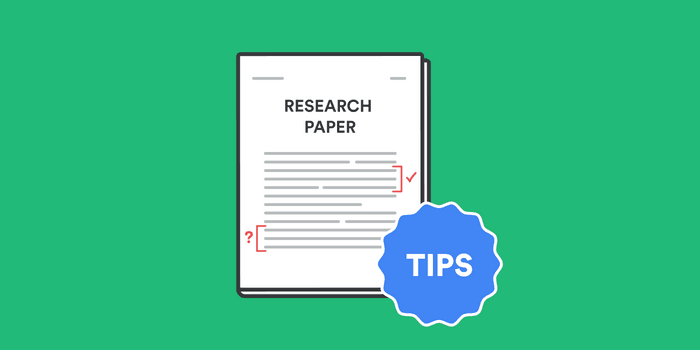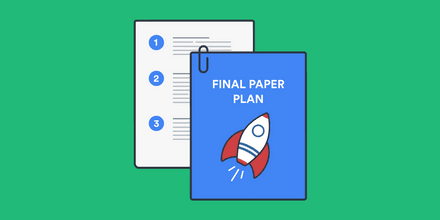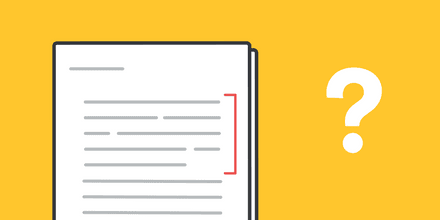
You’ve finished writing your research paper and you’re ready to revise, but where do you start? This post offers six tips for ensuring that your revision process goes smoothly.
1. Step away from your paper
It’s always best to take a break between writing your research paper and revising it. This enables you to approach your revision with fresh eyes. You’ll catch more errors when you’ve had time to step away from the paper.
2. Read your paper aloud
Reading your paper aloud, either to yourself or to someone else, is one of the best ways to check for major stylistic and structural issues. If you stumble over a sentence (or your audience looks confused), then you likely need to restructure or rephrase a sentence or paragraph.
3. Cut your paper up
To ensure that you’ve fully argued what you set out to prove in your thesis, try cutting your paper up into paragraphs or sections. Lay out the sections on a large table and then read through your paper, pausing to check that claims are backed up by adequate evidence and analysis and that you’ve signposted the various steps of your argument.
4. Ask a friend or classmate to read your paper
Many writing classes include peer review workshops during which you read another classmate’s paper. Even if you aren’t able to take part in a more formal peer review, you can ask a friend, classmate, or family member to read over your paper. Alternately, you can ask someone to read your paper aloud to you.
5. Know the difference between revising and proofreading
Revising and proofreading are not the same. Revision refers to substantive changes in the structure and argumentation of a research paper, while proofreading means checking a paper for surface-level mistakes in spelling, grammar, and punctuation.
It’s important to understand the difference between these two approaches. You will want to proofread your paper after you revise it and before you turn it in.
6. Check your citations
As part of the revision process, you should double-check your citations and bibliography. Have you remembered to cite all borrowed material? Do your citations follow the correct style for the assignment?
If you haven’t compiled your final list of sources, you can use BibGuru's citation generator to create a bibliography, as well as in-text citations that you can copy to your document. Remember to consult your assignment guidelines, or your instructor, to find out what citation style is required for your research paper.
Frequently Asked Questions about revising a research paper
🔖 How do you revise a research paper?
There are multiple methods that you can use to revise your research paper, including reading the paper aloud or asking a classmate to read it. No matter what method you decide on, make sure you take a break between writing and revision.
📈 What is the importance of revising a research paper?
Revision is an essential step in the process of writing a research paper. It helps you correct mistakes in the overall structure and argumentation of your paper.
📇 What is an example of revising?
Revision often includes checking:
- the strength of your thesis (did you actually prove it?)
- overall organization (transitions, paragraph structure, etc.)
- evidence and analysis (do you have enough?)
- citations and bibliography
🖇 How is revision different from proofreading?
Revision refers to substantive changes in the structure and argumentation of a research paper, while proofreading means checking a paper for surface-level mistakes in spelling, grammar, and punctuation.
💌 How can I improve my revision skills?
Like other parts of the research and writing process, your revision skills will improve with practice. Make an effort to always include dedicated time for revision, no matter what you’re writing.


